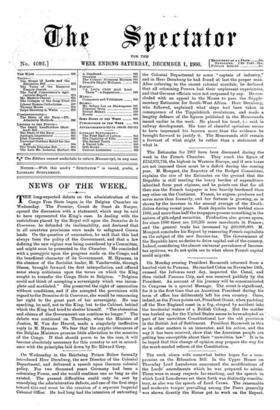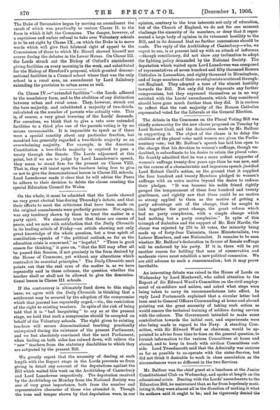The week closes with somewhat better hopes for a com-
promise on the Education Bill. In the Upper House on Thursday Lord Lansdowne announced the modifications of the Lords' amendments which he was prepared to advise. These were in many respects far-reaching, and the speech in which Lord Lansdowne set them forth was distinctly concilia- tory, as also was the speech of Lord Crewe. The reasonable and moderate temper prevailing among the Peers generally was shown directly the House got to work on the Report. The Duke of Devonshire began by moving an amendment the result of which was practically to restore Clause II. to the form in which it left the Commons. The danger, however, of a capricious and unfair refusal to take over Voluntary schools is to be set right by Clause IX., on which the Duke is to move words which will give that .bilateral right of appeal to the Commission of three to which Mr. Birrell showed himself not averse during the debates in the Lower House. On Clause III. the Lords struck out the Bishop of Oxford's amendment giving facilities on every morning in the week, and substituted for the Bishop of Hereford's proposal, which granted denomi- national facilities in a Council school where that was the only school in a rural area, an amendment by Lord Salisbury extending the provision to urban areas as well.































































 Previous page
Previous page